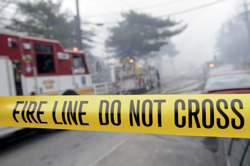The tragic August death of GSU freshman, Michael Gatto, has rallied many in support of Michael’s Law, a bill which would keep underage patrons and bouncers out of bars. House Bill 152 passed the Georgia House of Representatives on Friday, March 13th and now awaits review in the Georgia Senate.
Connect Statesboro Reports:
Since the death of GSU freshman Michael Gatto at Rude Rudy’s last August, Statesboro has been a hotbed of contention over underage alcohol sales and bar attendance. Police charged Grant James Spencer, then 20 — a bouncer who was at the club but reportedly off-duty at the time — with aggravated battery and felony murder. Gatto had arrived as a freshman at Georgia Southern University about two weeks earlier. Spencer, who was also a GSU student, remains in jail awaiting trial. Rude Rudy’s closed after Gatto’s death, and the club’s owner surrendered his alcohol license to the city.
In response to their son’s death, Gatto’s parents have been working to pass a bill that would keep underage people out of bars and away from alcohol. Last Friday, March 13, the Georgia House of Representatives passed House Bill 152, which proposes several changes to alcohol regulation laws statewide.
WHAT IT DOES
Here are the bare bones: The Georgia House of Representatives approved legislation to define what bars are, make 21 the minimum age to enter one or work as a bouncer, and place new demands on cities, counties and businesses to report alcoholic beverage violations.
BREAKING IT DOWN
What’s a bar?
According to the new legislation, a bar is a place that derives 75 percent or more of its revenue from alcoholic beverages. The Department of Revenue will be able to look at the monthly sales tax reports of each venue to determine where its revenue is coming from.
Under this definition, Statesboro technically doesn’t have any “bars” — only restaurants that serve alcohol but derive more than 50 percent of their revenue from food sales, or “sports restaurants” required only to have a food permit. However, if any Statesboro venues were to be audited and found to derive 75 percent of their revenue from alcohol sales, they would have to change their status to “bar” and enforce the under-21 restrictions.
The 21 rule
Under HB 152, a person have to be at least 21 years old to enter a bar. That applies to employees as well as customers, although the bill doesn’t explicitly include bartenders or servers.
Bouncers—defined as “individual(s) primarily performing duties related to verifying age for admittance, security, maintaining order, or safety, or a combination thereof” — must also be 21 years old.
Required reporting
Alcohol license holders must self-report any violations of local, state or federal alcohol laws to the Georgia Department of Revenue within 45 days of the violation.Cities and counties must also report any violations within their jurisdiction to the Department of Revenue. The revenue commissioner can issue fines of up to $750 for license holders who fail to report violations
SO IS THIS A DONE DEAL?
Not exactly. The bill has been passed in the Georgia House of Representatives and still has to go through the Georgia Senate. The Senate could alter the bill or hold off on passing it, meaning it wouldn’t come up again as a potential law until next year. Also, to become an official law, it’s going to need the governor’s signature.
Read the full article at Connect Statesboro and follow House Bill 152 at the Georgia General Assembly.
 Georgia Legal Report
Georgia Legal Report


 The Augusta Fire Department provided a fire safety training course to representatives from 20 local apartment complexes Thursday, August 7, 2014.
The Augusta Fire Department provided a fire safety training course to representatives from 20 local apartment complexes Thursday, August 7, 2014.